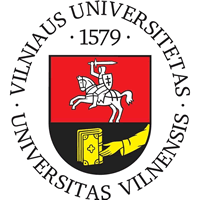The investigation of infection-related biomarkers has become crucial after the outbreak of covid-19 in 2019. For this reason, research is vital to responding to the changing situation, caused by mutation of the virus, and the impacts of infection after it has occurred.
During PhD studies, electrochemical signalling will be used, involving novel flexible electrodes as a platform for sensing. For sensing, conductive carbon structures and pseudo-conductive polymer coatings will be used. For analyte (biomarker) detection, particular bioreceptor-proteins will be immobilised on conductive surfaces using advanced surface chemistry. Successful immobilisation of bioreceptors will be evaluated under confocal microscopy, Bradford method etc. The analytical research will be performed in complex media (saliva, urine, tears, and blood plasma) for numerous analytes including dopamine, ascorbate, uric acid, vitamins, and proteins, to name a few. In order to increase the sensing performance, uncharged molecules (e.g. Zwitterionic) will be explored. If necessary, nanoparticles, polymers, and ionic membranes will be synthesised and research comparison studies conducted. Innovative electrochemical techniques and signal analytic techniques will be used to investigate bioreceptor-analyte interactions. The proposed research will have a significant impact on research and our Society.
Applicants must have a Master's qualification degree or a higher education degree equivalent to it.
Applicants have to submit to the Department of Scientific Information and Doctoral Studies via e-mail: [Email Address Removed] electronic versions (if there is no possibility to make an electronic version, the documents can be submitted to Saulėtekio av. 3, LT-10257 Vilnius, Lithuania, Room D409) of the following documents:
- Application for admission addressed to the Director of CPST (example);
- Copies of Masters‘s degree diploma or of a higher education diploma equivalent to it and their supplements;
- A copy of the certificate on the recognition of higher education qualifications obtained abroad (if requested by FTMC);
- Curriculum Vitae;
- Recommendations by two academic referees from the topic of the relevant field of science;
- List of research works and their copies, conference presentations, works awarded at scientific competitions (if there is any);
- Application form with a photo (application form);
- Copy of passport or identification card.
Interview with applicants under the Doctoral committee established procedure will be held at FTMC, Saulėtekio av. 3, LT-10257 Vilnius, Lithuania, Room C301 or remotely (login links will be sent individually to each candidate). Candidates who are unable to attend the interview, additionally has to submit the Motivation Letter via e-mail: [Email Address Removed]
Doctoral studies begin on the 1st October.
Doctoral students admitted to a state-funded place are paid a fixed amount of scholarship: in the Ist year of studies – 798 Eur/month, in the IInd – IVth year of studies – 924 Eur/month.
More detailed information is available at the Department of Scientific Information and Doctoral Studies of FTMC, Saulėtekio av. 3, LT-10257 Vilnius, Lithuania, Room D412, phone: +370 5266 1646, e-mail: [Email Address Removed]

 Continue with Facebook
Continue with Facebook



